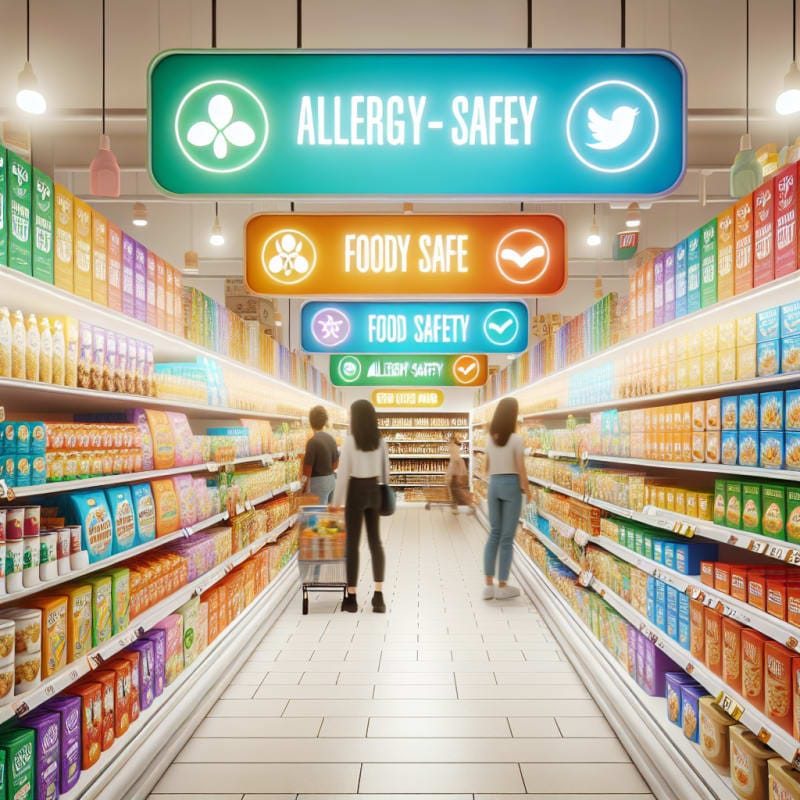Stew Leonard’s Workers Not Liable in Cookie Allergy Death: What It Means for Food Allergy Safety
Food allergies are a growing concern for millions of consumers, with tragic consequences when allergens are not properly disclosed. A recent court ruling involving Stew Leonard’s, a popular grocery chain, has spotlighted the challenges of food labeling, worker responsibility, and consumer safety. Here’s what you need to know, and how you can protect yourself and your loved ones when shopping for food.
Background: The Stew Leonard’s Cookie Allergy Case
In a widely reported case, a Connecticut judge ruled that Stew Leonard’s workers are not liable in the 2022 death of a woman who suffered a fatal allergic reaction after eating a cookie that contained peanuts. The cookies, sold under the Stew Leonard’s brand, were later recalled due to undeclared peanuts, as reported by Patch and NBC News.
| Key Facts | Details |
|---|---|
| Incident | Fatal allergic reaction to undeclared peanuts in Stew Leonard’s cookies |
| Legal Ruling | Judge found store workers not personally liable |
| Recall | Cookies recalled after the incident |
| Regulatory Authorities | FDA (U.S.), EFSA (Europe) |
Why Was Stew Leonard’s Staff Not Held Liable?
The judge determined that individual workers were not responsible for the labeling error, as the issue stemmed from the manufacturer and supply chain, not from employee negligence or misconduct. This ruling underscores the complexity of food labeling regulations and the importance of robust supply chain oversight.
- Manufacturing responsibility: Food manufacturers are required by the FDA and EFSA to accurately label allergens on all packaged foods1,2.
- Retailer responsibility: Stores must ensure products meet labeling standards but may not be liable for upstream errors unless there is clear negligence.
- Consumer vigilance: Individuals with allergies must remain vigilant, but systemic protections are essential.
The Larger Issue: Food Labeling and Allergy Safety
This tragedy highlights the broader challenges facing food safety:
- Allergen mislabeling remains a leading cause of food recalls (FDA Guidance)3.
- Food allergies affect over 32 million Americans, including 1 in 13 children4.
- Recent recalls: Major brands like Trader Joe’s and Wegmans have issued recalls for undeclared allergens in 2024 (Food Safety News).
Current Food Safety News and Trends
- Product recalls: The FDA’s recall database lists frequent allergen-related recalls.
- Labeling laws: The U.S. Food Allergy Safety, Treatment, Education, and Research (FASTER) Act now requires sesame to be labeled as a major allergen5.
- Emerging trends: Plant-based and keto products are on the rise, but may introduce new allergens or cross-contact risks (NCBI)6.
- Sustainability moves: Brands are reformulating products to meet consumer demand for transparency and ethical sourcing.
What Can You Do to Stay Safe?
- Always read ingredient labels carefully, even on familiar products.
- Check for recalls before purchasing, especially if you have food allergies.
- Ask questions at the store—but remember, staff may not always have full ingredient details.
- Use technology: Apps like Food Scan Genius help you instantly scan products for allergens, dietary preferences, and recalls. As one user, Sarah L., shared: “After my son’s peanut allergy diagnosis, Food Scan Genius gave me peace of mind. I can shop confidently, knowing I’ll be alerted to hidden risks.”
How Food Scan Genius Simplifies Safe Food Choices
- Instant allergen detection via barcode scanning
- Personalized dietary filters (vegan, keto, gluten-free, etc.)
- Automatic recall alerts for scanned products
- Ingredient transparency for ethical and health-conscious shoppers
Expert and Regulatory Perspectives
- FDA: The U.S. Food and Drug Administration enforces strict allergen labeling laws and issues recalls for violations7.
- EFSA: The European Food Safety Authority provides scientific advice and monitors food allergy risks in Europe8.
- Scientific consensus: Clear labeling, consumer education, and supply chain accountability are critical to preventing allergic reactions9,10.
Frequently Asked Questions
- Who is responsible for food allergen labeling?
- Manufacturers are primarily responsible, but retailers must ensure products are compliant with regulations.
- What should I do if I have a food allergy?
- Always check labels, ask questions, and use tools like Food Scan Genius to reduce risk.
- How can I stay updated on recalls?
- Follow FDA and EFSA updates, or use apps that provide real-time recall alerts.
Conclusion: Smart Food Choices Start with Knowledge
The Stew Leonard’s case is a sobering reminder that food safety is a shared responsibility—from manufacturers to retailers to consumers. As food ingredients become more complex and supply chains more global, understanding what’s in your food is more important than ever. By staying informed, reading labels, and using technology like Food Scan Genius, you can make safer, smarter choices for yourself and your family.
References:
1. FDA: Food Allergies
2. EFSA: Food Allergies
3. FDA Guidance on Allergen Labeling
4. NCBI: Food Allergy Prevalence
5. FDA: FASTER Act Q&A
6. NCBI: Plant-Based Foods and Allergies
7. FDA Recalls
8. EFSA: Food Allergy Monitoring
9. PubMed: Allergen Labeling Effectiveness
10. PubMed: Food Allergy Management





